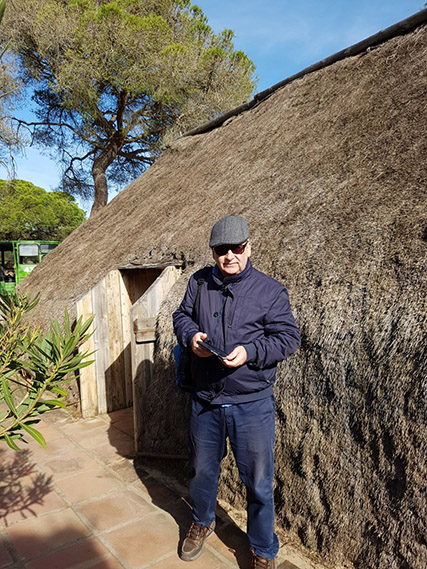BIO
Antonio Cerrillo (La Rambla, Córdoba, 1959) is among the pioneers in Spanish environmental journalism, as the jury’s citation states, but his entry to the trade – which he has been practicing for over 30 years at daily newspaper La Vanguardia – was entirely the product of chance. He had been working as a reporter on court cases and local news, when “in the late 1980s the opportunity arose to write on the environment, and I decided to take it up,” he recalls. “And the reason I have stayed in the field so long is that I have never stopped learning and wanting to learn more.”
With a degree in Hispanic Philology from the University of Barcelona, Cerrillo was the first dedicated environment reporter at La Vanguardia, where he started in 1983 and continues to this day. In the course of his career he has tackled numerous issues including biodiversity conservation, climate change and the destruction of the ozone layer, as well as environmental problems that particularly affect Spain, like those related to water or waste management.
MORE+
Antonio CerrilloCONTRIBUTION
Much of his work has involved reporting on UN conferences on climate change and biodiversity, but he has also found time to author or co-author several books on the subject of the environment. It was Cerrillo, moreover, who broke the news in the press of the contamination of the Flix reservoir (River Ebro), which had been functioning for decades as an underwater industrial waste dump, prompting the launch of a plan to decontaminate the area with European funding. He was also the driving force behind Canal Natural, a dedicated section of the La Vanguardia website, where he has been able to foreground items on wildlife conservation.
“We cover every kind of subject matter: fauna and flora, but also agriculture, politics, the economy … They all demand an environmental perspective,” Cerrillo explains. The veteran La Vanguardia reporter believes his mission is not only to inform, but also to educate, analyze and even shock when necessary. “Those who label us as alarmists are those who prefer inaction,” he says. “But it not the messenger who is raising the alarm, it’s the community of scientists.”
Cerrillo is convinced that the most effective means to engage readers is to tell the story “in the most educational way possible.” “It is also crucial to change the kind of iconography where the news story comes with a photo of a polar bear adrift in the Arctic. We have to find an image that gets closer to people,” he urges, “not one that immobilizes us.”
He approaches environmental news not so much as a specific thematic area, but more from the standpoint of conveying the cultural values derived from new development paradigms more closely aligned with nature. “When we talk about climate, we’re no longer just talking about rising temperatures, we are talking about causes and solutions, about measures to change the prevailing energy model. Environmental reporting touches on the desire for a profound social transformation that can solve these environmental problems, which are, in turn, the visible sign that betrays our conduct towards the world around us.”
On today’s pandemic and its fallout, omnipresent in the media, he contends that “we cannot help but see, deep down, how ecological issues and environmental degradation are the origin, the root cause of many of these problems.” He also points out that the pandemic has had ecological impacts. “There has been a decrease in pollution that has made us see, in a great global experiment, how it is possible to reduce the chief cause of pollution in cities, car traffic. We have also experienced cities with less noise, and this has conjured an image in our collective mind of how a society might look where human beings were a secondary presence.” This should lead us, he believes, to posit a “green” recovery, in which the role of air transport, tourism and the energy model must radically change. “As must the proliferation of single-use plastics and masks, which threaten to further mire waste management and increase the damage to nature.” All this, he adds, comes down to “describing a new world in environmental reporting.”

